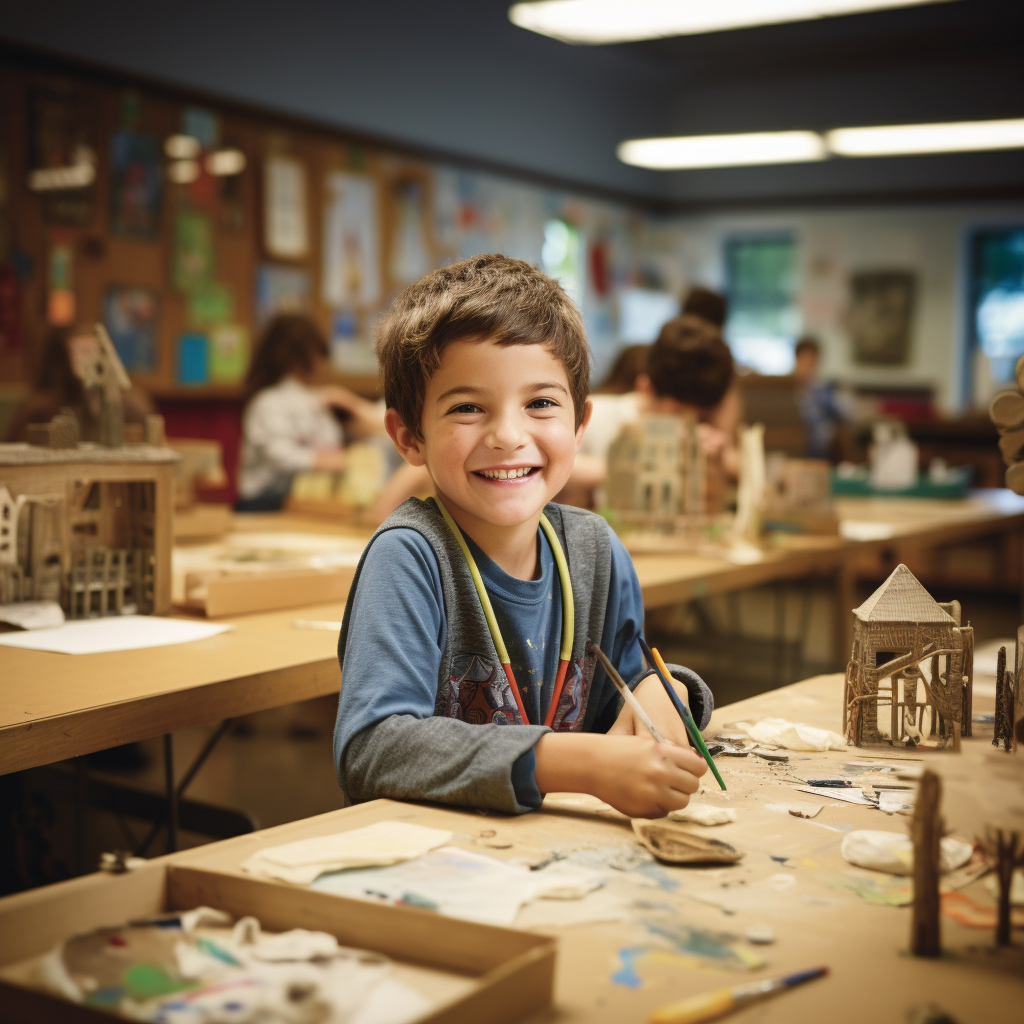High IQ and Behavior Problems: What's the Link?
Gifted children are often characterized by their exceptional intellectual abilities. An individual with a high IQ typically scores 130 or above on standardized intelligence tests, which places them in the top 2% of the population. This high level of intelligence means they can process information faster, have an extensive vocabulary, and possess a deep curiosity about the world around them. However, this cognitive advancement can sometimes lead to unique behavioral challenges.
These children may experience a sense of isolation due to differing interests from their peers, or they might exhibit signs of frustration when not adequately challenged. Their advanced cognitive abilities can also lead to heightened sensitivity and emotional intensity. As a result, parents and educators may observe behaviors that seem out of sync with the child's age, such as questioning authority or expressing concern over moral and ethical issues.
Understanding the full profile of a gifted child's capabilities and challenges is essential for providing the right support. At Vanguard Gifted Academy, we recognize the importance of nurturing both the intellectual and emotional development of high-IQ students. We create an environment that addresses their unique needs, encouraging growth, learning, and positive behavior.
If you're wondering how to best support your gifted child or are interested in learning more about our approach, email us at gifted@vanguardgiftedacademy.org to schedule a tour and discover how we can help your child thrive.
Behavioral Challenges Associated with High IQ

While a high IQ can be a blessing, it often comes with its own set of behavioral challenges. Gifted children may experience asynchronous development, where their cognitive abilities are significantly advanced compared to their emotional and social development. This can result in feelings of alienation among peers and difficulties in social interactions.
Moreover, these children may display characteristics of perfectionism and intense sensitivity to criticism or failure. They set high expectations for themselves which, when unmet, can lead to frustration and anxiety. Such intense inner pressure can sometimes manifest as disruptive behavior or withdrawal in traditional classroom settings.
Another common issue is under-stimulation, where the school curriculum does not meet the advanced learning needs of the gifted child. This lack of challenge can lead to boredom and inattention, often misinterpreted as ADHD or other attention-related disorders. Conversely, their keen sense of justice and fairness may cause them to question rules or authority figures, which can be misconstrued as defiant behavior.
It is critical to recognize these behaviors not as problems per se, but as indicators of underlying needs that are not being met. Effective support strategies must be implemented to help these children navigate their complex inner world and harness their potential in constructive ways.
The Role of Asynchronous Development in Behavior

Asynchronous development, a hallmark of giftedness, plays a pivotal role in the behavioral patterns observed in high-IQ individuals. This phenomenon occurs when a child's intellectual growth significantly outpaces their social and emotional development, leading to a mismatch between their mental capabilities and emotional maturity. Gifted children, as a result, often struggle to find common ground with age-mates, feeling isolated and misunderstood.
Such children may exhibit behaviors that seem paradoxical - demonstrating advanced reasoning skills in one moment and then responding with emotional outbursts that appear immature in the next. It's this disparity that can often lead to misunderstandings with educators and parents who may expect a uniformity in the child's development across all areas.
Furthermore, asynchronous development can cause internal conflicts within the child. The intellectual part of them craves challenge and stimulation, while the emotional side may not be ready to cope with the corresponding pressure and complexity. This internal discord can manifest in behaviors such as intense frustration, heightened sensitivity to criticism, or a refusal to participate in activities that do not align with their intellectual interests.
Understanding and supporting asynchronous development is crucial. It requires a tailored approach to education and parenting that addresses both the advanced intellectual needs and the nurturing of social and emotional skills. This balanced support helps in mitigating behavior issues and promotes a well-rounded development for gifted children.
Navigating Social and Emotional Dynamics of Giftedness

Gifted children often face unique social and emotional dynamics that can be challenging to navigate. Their advanced cognitive abilities and intense curiosity may set them apart from their peers, leading to feelings of alienation or social isolation. In a traditional classroom setting, these children may struggle to connect with classmates who do not share their intellectual interests or intensity, potentially leading to high iq and behavior problems.
Moreover, many gifted individuals possess heightened sensitivity and empathy, making them acutely aware of their environment and the emotions of those around them. This can be overwhelming and may contribute to anxiety, stress, and emotional extremes. Without appropriate support, gifted children might develop coping mechanisms that appear as behavioral issues to those who do not understand the root of the problem.
It is essential for parents and educators to recognize that the social and emotional development of gifted children requires as much attention as their academic growth. Creating opportunities for these children to interact with like-minded peers through specialized programs or extracurricular activities can be invaluable. Such interactions provide a safe space for gifted children to express themselves authentically and develop meaningful friendships with others who appreciate and share their unique perspectives and abilities.
Ultimately, by acknowledging and addressing the complex social and emotional needs of gifted children, parents and educators can help them harness their potential while fostering a sense of belonging and well-being.
Strategies for Supporting High IQ Children with Behavioral Issues
Supporting high IQ children with behavioral issues requires a multifaceted approach that acknowledges both their intellectual capabilities and their unique emotional needs. Effective strategies involve creating an environment where these children can thrive both academically and socially.
One critical strategy is differentiated instruction. This approach tailors teaching methods and content to meet the advanced learning pace and style of gifted children. By offering challenging and engaging material, educators can prevent boredom and frustration, which are common triggers for behavioral problems in gifted children.
Another key strategy is to implement social skills training. This can be done through role-playing, social stories, or group activities that teach gifted children how to interact appropriately with their peers and manage their emotions. Enhancing their social toolkit can reduce feelings of alienation and improve peer relationships.
Additionally, providing opportunities for leadership and mentorship can empower high IQ children to take ownership of their learning and behavior. By involving them in decision-making or pairing them with younger students as mentors, they can develop a sense of responsibility and pride in their abilities.
Furthermore, incorporating social-emotional learning (SEL) into the curriculum helps gifted children understand and manage their emotions, set and achieve positive goals, and establish and maintain positive relationships. SEL programs can also teach children to make responsible decisions and handle interpersonal situations judiciously.
Lastly, it is crucial for parents and teachers to maintain open lines of communication. Regular check-ins can provide a safe space for gifted children to voice their concerns and for adults to offer guidance. Understanding the link between high IQ and behavior problems is the first step towards offering the necessary support to help these children succeed.
Creating an Inclusive Environment for Gifted Learners

Creating an inclusive environment for gifted learners is an essential aspect of addressing both their academic and emotional needs. It's about fostering a setting where diversity in learning and thinking is not only recognized but celebrated. An inclusive classroom provides equitable opportunities for all students, including those with a high IQ, to engage, learn, and grow.
To achieve this, schools must implement flexible grouping strategies that allow gifted students to work with a variety of peers, ensuring they are not isolated due to their abilities. This can lead to a more dynamic and collaborative learning experience for all students involved.
Moreover, teachers should be trained in recognizing and nurturing the unique talents of high IQ students while also being sensitive to their potential behavioral issues. Professional development in gifted education is vital for educators to effectively support these students within the inclusive environment.
Curriculum adaptations are also key. Providing enrichment activities that extend beyond the standard curriculum can help keep gifted learners engaged and motivated. This could include project-based learning, independent study opportunities, or participation in academic competitions that challenge their intellect while building social skills.
An inclusive environment also incorporates assistive technologies and resources that support diverse learning styles. This ensures that high IQ students with different learning preferences or those who may also have learning disabilities are not disadvantaged.
To learn more about creating an inclusive environment for gifted learners, or to see how Vanguard Gifted Academy implements these strategies firsthand, email us to schedule a tour. Our approach to personalized learning, STREAM, and social-emotional learning is designed to nurture and challenge gifted minds while promoting self-awareness and confidence.
